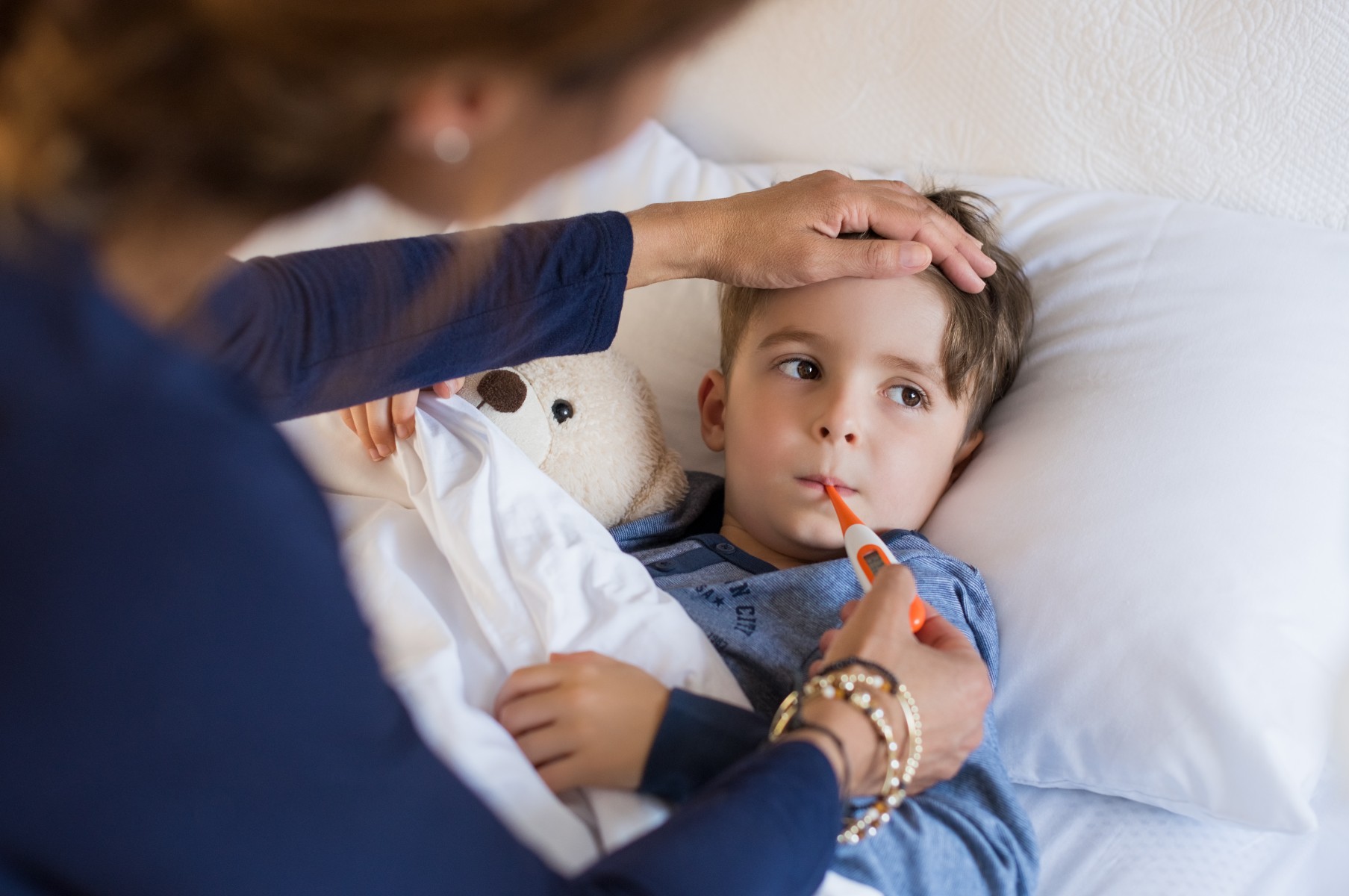RSV and the Holidays

Schools across the country are on winter break and holiday gatherings are here along with the winter weather. That means the perfect storm for seasonal illnesses to spread is nearly inevitable. This year we have heard the term “triple-demic” used in reference to the current strains of flu, COVID-19, and respiratory syncytial virus (RSV) that are circulating across the country.
Health experts are urging parents to use caution in the coming weeks in order to help reduce the spread of these viruses. The least familiar of the three viruses for many parents is RSV. While RSV is not new, the patterns of circulation for RSV and other common respiratory viruses have been disrupted and have evolved since 2020. Health experts encourage parents to be aware of any signs and symptoms of this virus their child might be experiencing.
“Similar to other viruses they can present with cough, congestion, runny nose, and fever. However, with RSV, the symptoms seem to worsen on day three to five,” says Dr. Safiat Amuwo, an OSF HealthCare pediatrician.
One symptom of RSV in particular that differentiates it from these other viruses is respiratory distress, which can be difficult for parents to recognize. Some people associate a persistent or worsening with respiratory distress. This, however, is not necessarily the best indicator. Dr. Amuwo says paying close attention to your child’s breathing and body language is key.
“Signs or symptoms to look out for are head bobbing and if a child has excessive head bobbing after each breath, flaring of their nostrils, chest retractions or increased work of breathing, poor feeding, they are lethargic, they are not easily arousable – these are some signs that they may be tiring out,” Dr. Amuwo explains.
Dr. Amuwo adds that the increased work of breathing, or fast, shallow breathing, is the most important of these to watch for as an indication of respiratory distress that would likely indicate it could be RSV. If you think your child might be in respiratory distress, Dr. Amuwo says not to wait for an appointment with their pediatrician and to take them directly to the nearest emergency room.
The COVID-19 pandemic taught us the importance of isolating and monitoring symptoms if someone receives a positive diagnosis of the virus. The same can be said for RSV. According to the CDC, people infected with RSV are usually contagious for three to eight days and may become contagious a day or two before they start showing signs of illness – but some infants and people with weakened immune systems can continue to spread the virus even after they stop showing symptoms, for as long as four weeks.
Health experts urge families with a known case of RSV in the household to refrain from attending gatherings and to cancel any travel plans. If you have a sick child at home and need to go in to work, Dr. Amuwo advises parents to bring childcare to them rather than bringing your child outside of the home, which would increase the risk of spreading the disease.
“In high risk populations, especially infants who are premature or who have some history or bronchopulmonary dysplasia, it is recommended to avoid daycares if possible,” says Dr. Amuwo.
Because there is not currently a vaccine for RSV, the best way to prevent it is similar to the measures that have been used for prevention of COVID-19: hand washing and mask wearing. If you do have plans to see loved ones or to travel over the holidays, do so with caution.
There are measures that can be taken to help treat RSV at home, such as over-the-counter medications, warm showers, drinking plenty of fluids, and using a humidifier. Dr. Amuwo recommends talking to your child’s pediatrician before proceeding with any at-home treatments for RSV.
“A humidifier, specifically a cool mist humidifier, can help relieve some symptoms. However, if a child has underlying asthma or allergies, sometimes a humidifier can actually worsen their symptoms,” Dr. Amuwo says.
Some at-home treatments that are recommended or work for one child does not necessarily mean they will work for another. Their pediatrician can help you determine the best plan for your child.
Like many viruses, RSV cannot be treated with antibiotics. However, if the virus progresses and a child develops further illness such as a superimposed bacterial infection or pneumonia, antibiotics may be an option. In any case, if your child’s symptoms worsen, make an appointment with their pediatrician. If they become severe, go to the nearest emergency room.
“If parents see that their child has respiratory distress – which includes the increased work of breathing, grunting, head bobbing, chest retractions, nasal flaring – those are more concerning signs so that would be more of a reason to be evaluated in an emergency room,” advises Dr. Amuwo.
If you or your child become sick with RSV, COVID-19, or the flu this holiday season, monitor symptoms closely, follow the recommended guidelines to reduce the spread, and stay home until the virus has run its course.
Interview Clips:
Schools across the country are on winter break and holiday gatherings are here along with the winter weather. That means the perfect storm for seasonal illnesses to spread is nearly inevitable.

